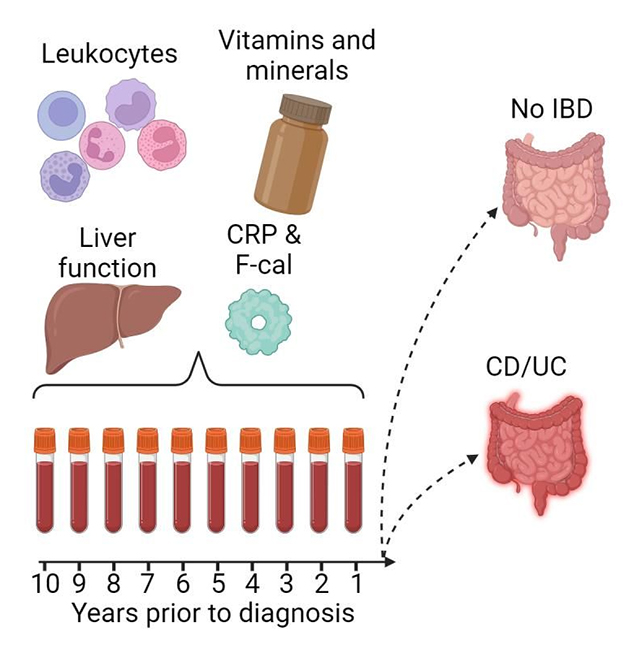Crohn's disease is a debilitating inflammatory bowel disease (IBD) for which there's no cure, although it can be managed to some extent. Now a new study outlines how Crohn's can be spotted much earlier – potentially opening up more treatment options.
Researchers from the Francis Crick Institute in the UK and Aalborg University in Denmark pored over a decade of test results from some 20,000 IBD patients, recorded before a diagnosis was made.
They looked for small changes in 17 different biomarkers in the body, including markers for inflammation and levels of minerals such as iron.
As such a large dataset was analyzed, the team was able to spot small variations that would otherwise have been missed: changes that started some eight years ahead of diagnosis for Crohn's disease, and three years ahead of diagnosis for ulcerative colitis, another type of IBD.

While the researchers say these biomarkers only have a "modest" ability to predict the development of inflammatory bowel diseases like Crohn's, it showcases how early these diseases can start making changes to the body – and represents a significant step towards tests for earlier and more accurate diagnosis.
"Our research shows that the bowel damage we're seeing at the point of diagnosis is just the tip of the iceberg," says immunologist James Lee, from the Francis Crick Institute.
"So many changes are subtly taking place in the body before the disease takes hold. This has huge implications for prevention as it highlights that there's a window of opportunity for treatment."
Further research could look into whether early treatments or preventative measures are enough to lessen the impact of IBD, or even to stop it from developing altogether. A lot of tests and treatments can be applied over a span of eight years.
These conditions affect millions of people worldwide, often younger people, and the number of cases is on the rise. While it's long been suspected that there's a preclinical phase for these problems, there hasn't been much hard evidence for it – and it now seems this phase lasts longer than anyone thought.
As well as understanding more about how to treat Crohn's and other diseases like it, scientists are continuing to work on figuring out exactly how it gets started. This is another area where the new research could be vitally helpful.
"So many young people are affected by IBD," says molecular scientist Marie Vestergaard from Aalborg University. "Their lives, hopes and aspirations for the future are turned upside down by a diagnosis and trying to live with a chronic disease.
"I am happy that our research might help predicting who could potentially suffer from IBD and thus start treatment earlier which would greatly improve their quality of life."
The results have been published in Cell Reports Medicine.
